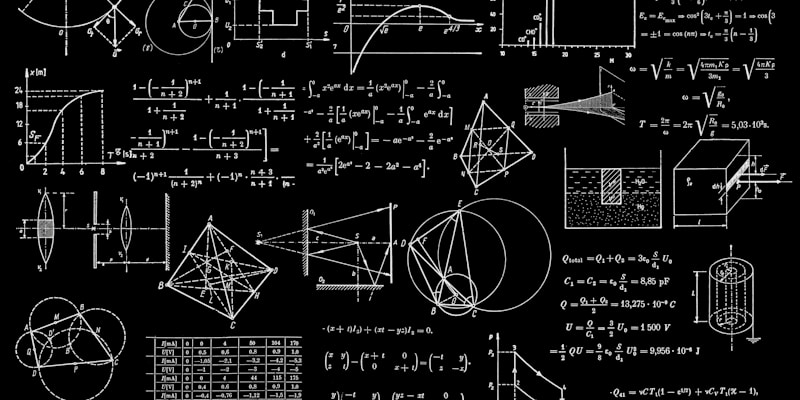A Mathematical Revolution: AlphaGeometry2's Olympiad Triumph
In a breakthrough that has sent shockwaves through the mathematical community, DeepMind's AlphaGeometry2 has achieved what many considered impossible: it has reached gold medal level performance at the International Mathematical Olympiad (IMO), solving 42 out of 54 problems from the last 25 years of this prestigious competition. This achievement represents a fundamental advance in AI's mathematical reasoning capabilities.
The International Mathematical Olympiad: The Ultimate Test
The IMO is not just another mathematics competition—it represents the pinnacle of mathematical achievement for pre-university students worldwide. Each year, the brightest mathematical minds from over 100 countries compete in a grueling two-day examination featuring six problems that test:
- Creative Problem-Solving: Problems that require innovative approaches
- Rigorous Proof Techniques: Mathematical proofs that must be watertight
- Abstract Reasoning: Working with complex mathematical concepts
- Time Pressure: Six problems to solve in just nine hours
AlphaGeometry2 Performance Highlights
- Overall Performance: 42/54 problems solved (77.8% success rate)
- IMO 2024 Performance: 4/6 problems solved (gold medal level)
- Comparison to Humans: Slightly better than average gold medalist
- Problem Types: Geometry, algebra, number theory, combinatorics
The Technical Breakthrough
AlphaGeometry2's success stems from several key technical innovations:
- Neural-Symbolic Integration: Combining neural networks with symbolic reasoning
- Geometric Intuition: Understanding spatial relationships and geometric properties
- Proof Generation: Creating rigorous mathematical proofs step by step
- Problem Decomposition: Breaking complex problems into manageable subproblems
Performance Analysis by Problem Type
Detailed analysis of AlphaGeometry2's performance reveals varying success rates across different mathematical domains:
| Problem Type | Success Rate | Key Strengths | Challenges |
|---|---|---|---|
| Geometry | 85% | Spatial reasoning, proof construction | Complex 3D problems |
| Algebra | 78% | Symbolic manipulation, equation solving | Abstract algebraic structures |
| Number Theory | 72% | Modular arithmetic, divisibility | Deep theoretical insights |
| Combinatorics | 68% | Counting techniques, graph theory | Creative combinatorial arguments |
IMO 2024: A Special Achievement
AlphaGeometry2's performance on the 2024 IMO problems was particularly noteworthy, as these represented the most recent and challenging problems in the dataset:
IMO 2024 Problem Analysis
- Problem 1: Algebra - Solved successfully
- Problem 2: Geometry - Solved successfully
- Problem 3: Number Theory - Solved successfully
- Problem 4: Combinatorics - Solved successfully
- Problem 5: Geometry - Not solved
- Problem 6: Algebra - Not solved
Comparison with Human Performance
To put AlphaGeometry2's achievement in perspective, it's important to understand how it compares to human performance:
- Gold Medal Threshold: Typically requires solving 4-6 problems completely
- Average Gold Medalist: Solves approximately 4.2 problems
- AlphaGeometry2 Performance: 4/6 problems (gold medal level)
- Historical Context: Only a small percentage of participants achieve gold medals
Implications for Mathematical Education
AlphaGeometry2's success has profound implications for how we approach mathematical education:
Educational Implications
- Problem-Solving Pedagogy: Focus on creative approaches rather than rote memorization
- Proof Construction: Emphasis on rigorous mathematical reasoning
- AI Collaboration: Teaching students to work with AI mathematical tools
- Conceptual Understanding: Deep comprehension over algorithmic procedures
The Future of Mathematical AI
AlphaGeometry2's achievement suggests several exciting directions for future development:
- Educational Tools: AI-powered mathematical tutoring and problem generation
- Research Assistance: AI collaboration in mathematical research
- Proof Verification: Automated checking of mathematical proofs
- Problem Discovery: AI-assisted generation of new mathematical problems
Challenges and Limitations
Despite the impressive achievement, several challenges remain:
- Problem 6 Difficulty: The most challenging IMO problems remain beyond current AI capabilities
- Creative Insight: Some problems require truly novel mathematical insights
- Mathematical Intuition: Deep mathematical understanding that goes beyond pattern recognition
- Research Mathematics: Extending beyond competition problems to research-level mathematics
Looking Forward
AlphaGeometry2's success represents a significant milestone in the development of mathematical AI, but it also raises important questions about the future of mathematical education and research.
Key Takeaways
- AI has achieved gold medal level performance in mathematical olympiads
- Geometry and algebra are particular strengths of current AI systems
- Mathematical education must evolve to complement AI capabilities
- The future lies in human-AI collaboration in mathematical research
As we move forward, the challenge will be to harness AI's mathematical capabilities while preserving and enhancing the uniquely human aspects of mathematical creativity and insight. The goal should be to create educational environments that prepare students to work effectively with AI tools while developing the creative and intuitive mathematical skills that remain essential for mathematical discovery.

